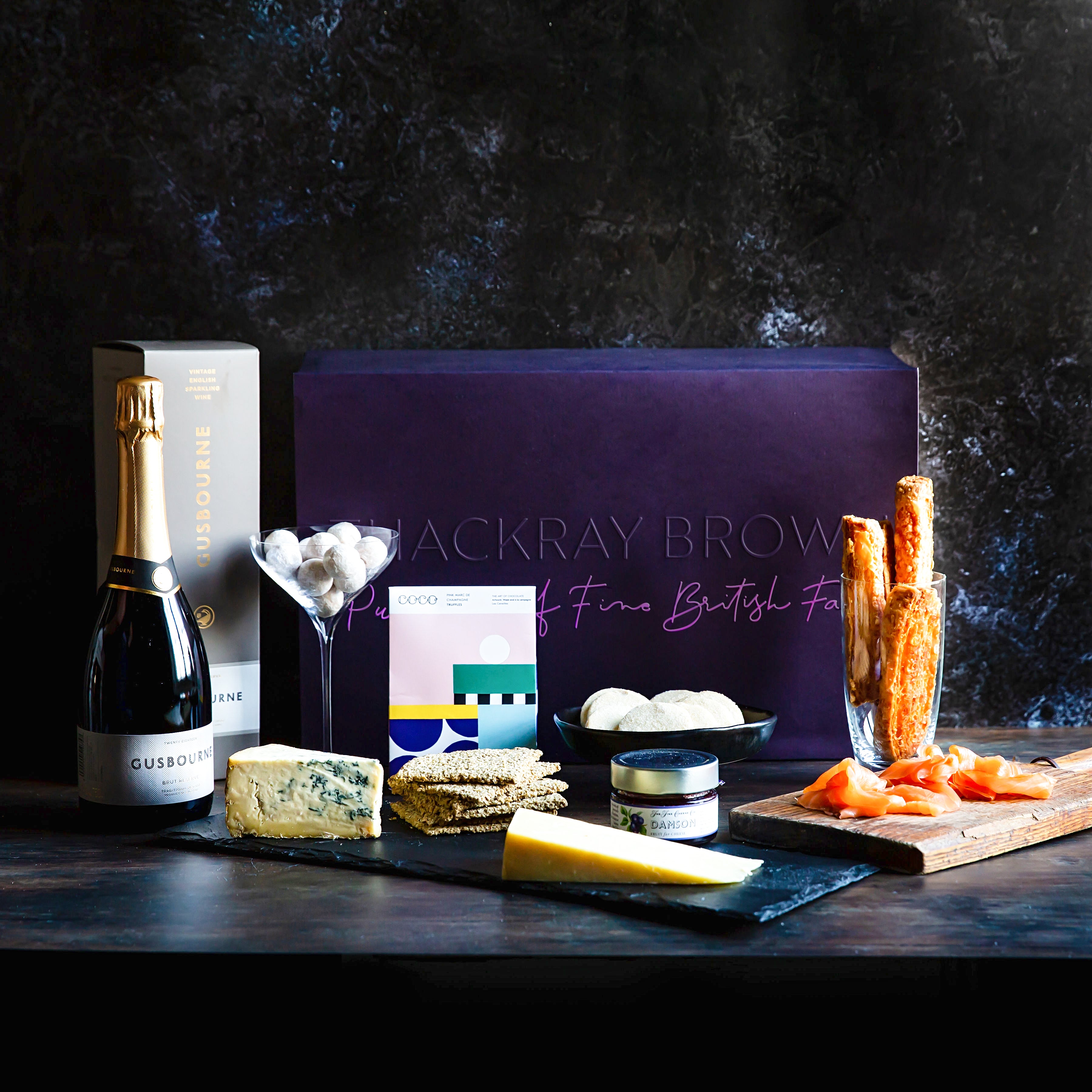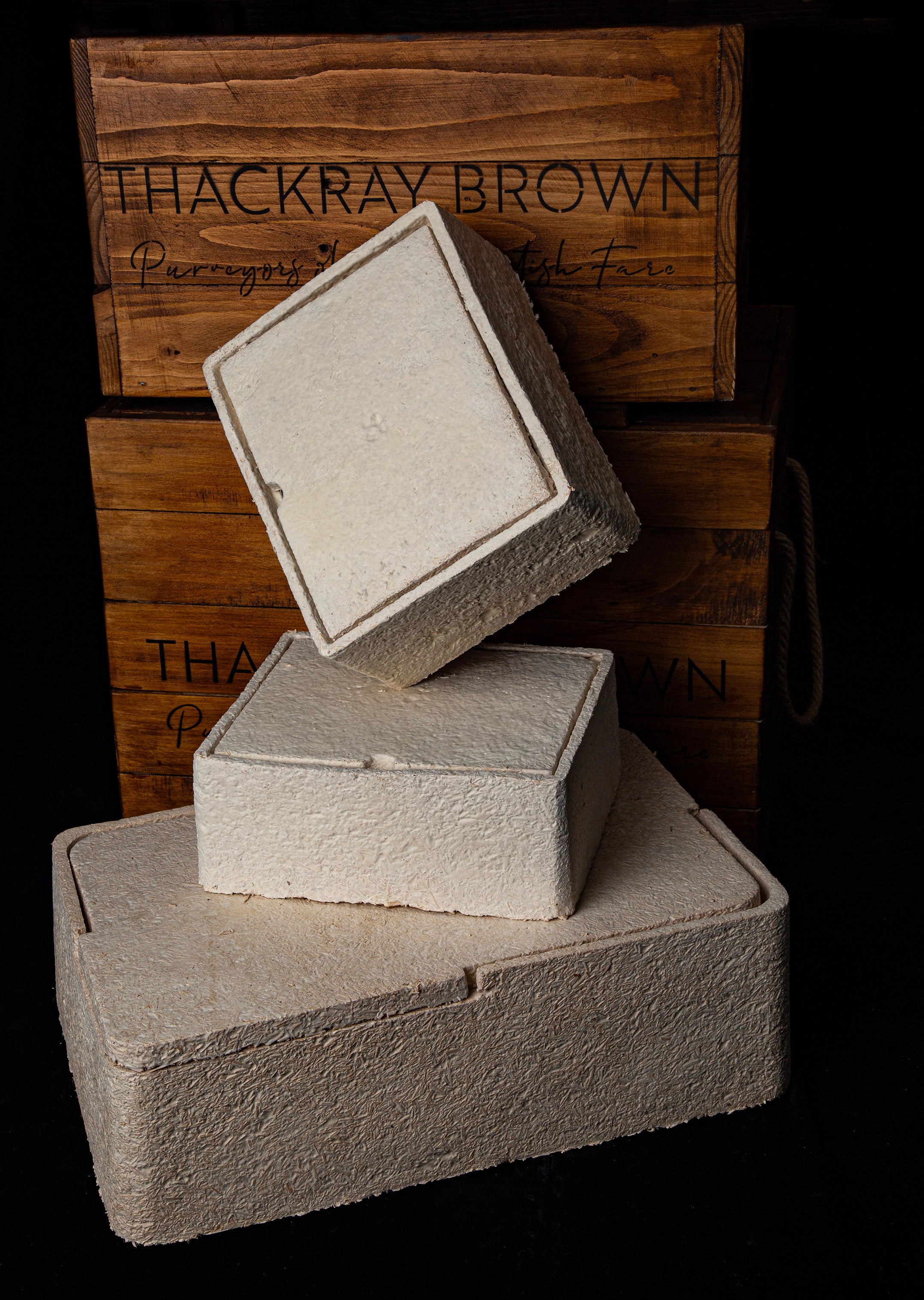

SOURCING & SUSTAINABILITY
Thoughtfully Curated Hampers
As passionate food lovers, we go out of our way to find the best British artisans in their fields from around the UK. From "Slow Food" producers & regional specialities, to award-winning innovations all of our produce has been selected for its quality. You will not find "filler" items in our hampers to bulk them out, we do quality over quantity to provide real food you want to eat.
From Borough Market, London to the Orkney Islands, we source exclusively from thoughtful producers who focus on just one area or delicacy. Some maintain centuries old regional recipes, others are combining innovative new methodology with social enterprise. They all share a level of passion, expertise and attention to detail that means our hampers deliver uncompromised integrity.
The artisans we work with craft their produce on a small scale which ensures their standards remain exceptionally high. Their produce is not found in supermarkets, but instead is available from local farmers' markets, food fairs and delis. To enable us to partner with such small, thoughtful producers, we do not name particular brands or varieties to be found in each hamper, allowing instead for seasonality, variety and managing limited production capacity.
Meet the producers
We are very particular about the producers we work with. To be selected for our hampers producers have to meet our standard excellence and align with our core values.
Our Supplier Code of Conduct
- Do they use recyclable/biodegradable packaging when viable?
- Are they Organic and Fair Trade Certified (where applicable)?
- Where do they source their core ingredients from?
- For British sourced core ingredients, how local are they to their production site?
- How large scale is their production? How much of the process is done by hand? Is it scaled to meet nationwide supermarket demand?
- Do they use palm oil?
- What preservatives are used, if at all, in their products?
- What is the producer's USP? Heritage process / food item, innovative?
- What Social Impact do they have? E.g. employing refugees or those with disabilities, donating some of their profits to charities, reusing food waste products?
- For meat, animal welfare - is it grass fed / is it organic / is it small scale farming / does it encourage reintroduction of rare breeds or use ex-dairy cows to reduce waste in the meat industry?
- Cheese producers, where do they source their milk from?
- Are they a Slow Food UK member?
- Use of free range eggs
- Fish suppliers - hand dived scallops / certified sustainable source, wild over farmed where possible (hard to come by) Caviar - ethically extracted.
- Are they Biodynamic or organic wine producers?
- Where applicable, do they ask their suppliers for their credentials?
- Do they measure their Carbon sequestration? If a micro business, do they encourage biodiversity/ regenerative farming?
-

Tempus Charcuterie
Tempus only use ex-breeding sows and ex-dairy beef in their charcuterie. This ethos is part of their commitment to utilising the food chain correctly. They only use animals at the end of their lives and that are a by-product of the animal protein industry. They acknowledge we have a responsibility to use animals already in existence as these - often overlooked animals - are truly special. They deliver marbling, fat ratios and intensity of flavour that simply cannot be matched by younger and smaller animals. They should be treated with the respect and reverence they deserve.
-

Gusbourne Vineyard
The only three-time winner of the IWSC English Wine Producer of the Year.
-

Nettlebed Creamery
Organic
-

Rococo Chocolates
Established on the King’s Road in London in 1983, with an international reputation for quality. Placing an emphasis on ethical sourcing, Rococo’s cocoa is certified organic by Chocofair, and they ensure it can be traced back to its plantation of origin through the use of QR codes.
-

Step and Stone Bakery
Step and Stone is an artisan bakery, proudly showcasing the talents and capabilities of adults with learning differences. 95% of adults with learning disabilities are unemployed, despite 65% indicating they would like a job. Step & Stone aim to increase the confidence of their trainees, provide practical skills, secure work placements and challenge perceptions fostering inclusivity. Their bakers are involved in every step of producing their award-winning products whereby they gain core work skills to progress into work experience and paid employment on a timeline catered to each individual.
-

Halen Mon Anglesey Sea Salt

Sustainable packaging
At Thackray Brown, we are committed to providing our customers with a truly indulgent and more sustainable gifting experience.
Mycelium packaging
We have chosen to use mycelium packaging for our luxurious hampers, all grown in Nottingham.
We’re proud partners of The Magical Mushroom Company, who supply 100% biodegradable boxes for most of our hampers. Unlike traditional wicker hampers that typically carry a heavy carbon footprint, mycelium boxes are designed to be composted, or planted in the ground after use, taking around 45 days to break down.
Mycelium packaging is made from the root structure of mushrooms. It is a natural and renewable material that offers numerous benefits for both the environment and the consumer. It helps break down dead plants, recycle nutrients, and share water and food between trees and plants. This hidden network keeps soil healthy and supports life above ground making it a vital part of our planet’s ecosystems. To make our Mushroom-based packaging, mycelium is mixed with agricultural by-products, including the woody core of hemp in 98% of our products. Hemp cultivation is a key biogenic carbon locking up CO2 at the rate of 15 tonnes per hectare – similar to the amount sequestered by a young forest.
Compared to packaging materials such as plastic or Styrofoam, mycelium packaging breaks down quicker and naturally over time, leaving no harmful residues behind.
We’re proud partners of The Magical Mushroom Company, who supply 100% biodegradable boxes for our Introductory, Small and Medium hampers. Unlike traditional wicker hampers that typically carry a heavy carbon footprint, mycelium boxes are designed to be composted, or planted in the ground after use.
Mycelium packaging is fully biodegradable and compostable. Unlike traditional packaging materials such as plastic or Styrofoam, mycelium packaging breaks down naturally over time, leaving no harmful residues behind.
Reclaimed wood hampers with purpose
Our large hampers are made from reclaimed-wood and produced in England by New Life Wood, a community support program for the unemployed, ex-offenders, and those suffering with mental health issues.
Thackray Brown boxes are part of their circular business model that recycles lumber, reduces landfill, and in turn helps restore lives.
As a small not-for-profit initiative, New Life Wood have a limited production capacity, which means on rare occasions there may be a waiting list for Large hamper orders. We hope you agree it’s worth the wait.

Our Impact
We are proud to have very low emissions, with 100% of our electricity coming from renewable energy suppliers and our own solar panels. By sourcing products locally, we avoid bringing in produce from abroad with greater carbon footprints.
We believe in upholding the gift of nature and protecting our environment wherever we can, that is why Thackray Brown financially supports the work of the Woodland Trust whilst our company directors support the Lincolnshire Wildlife Trust and Greenpeace.
We record our emissions improvements with The SME Climate Hub, a non-profit global initiative that empowers small to medium sized companies to take climate action and build resilient businesses for the future. In the next 5 years we aim to offset all our emissions and further reduce the use of plastic in our hampers. We will continue to prioritise suppliers with strong sustainability credentials and social impact.






